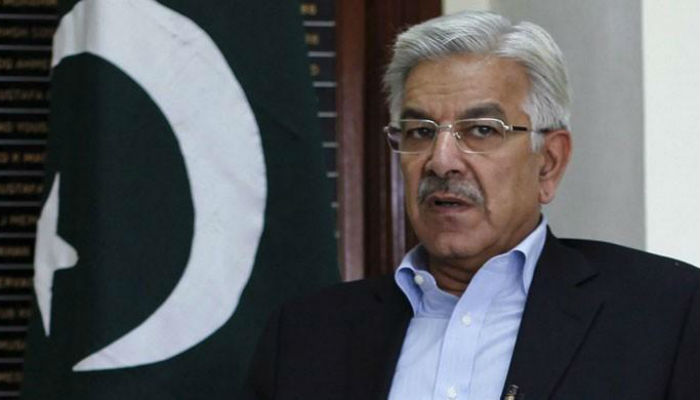
ISLAMABAD, October 26: Foreign Minister Khawaja Asif on Thursday said that the United States has failed in Afghanistan after deploying its forces for over 16 years and a political solution is needed. He was briefing the National Assembly’s Standing Committee on Foreign Affairs. Pakistan wants to have ties with the US based on self-respect and dignity; the country would not compromise on its sovereignty and dignity, the foreign minister underlined.
He said Pakistan had clearly told the US that it would not be a scapegoat in Afghan war, adding that the US was clearly apprised that the country was not responsible for its sheer defeat. About his recent tours of four countries concerning the revised US policy towards the region, Asif said that the all four friendly countries backed Pakistan’s stance towards the US. All these countries had also expressed reservations about the new US policy, the finance minister said. “Pakistan has also extended its consultation with Saudi Arabia regarding the US policy,” he added. He said all these countries have advised Pakistan to hold talks with the US. Moreover, he said the parliamentary resolutions also sent a strong message to the US. On Wednesday, the foreign minister was addressed the Senate session chaired by Raza Rabbani over the visit of United States Secretary of State Rex Tillerson to Pakistan on Tuesday. Khwaja Asif reminded that relations with US were seven decades old but several compromises were made in the past by respective governments and it would be more ideal to discuss Tillerson’s visit. He said that Pakistan desires peace in Afghanistan and is making efforts, but a large portion of the restive nation is controlled by the Islamic State. “Daesh is in control of forty-five percent of Afghanistan” he stated. “We have not made any compromise over (US President) Trump’s speech,” he said adding a compromise was made after the 9/11 attacks and the effects are still seen. “US efforts in our neighbourhood will not succeed,” he said. “The Afghan government is facilitating India in the region.” – DNA



